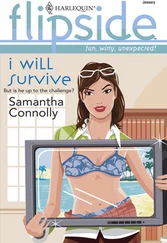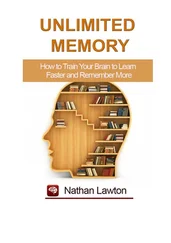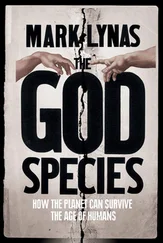My point is that regardless of whether humans are responsible for the sixth mass extinction on Earth, it’s going to happen. Assigning blame is less important than figuring out how to prepare for the inevitable and survive it. And when I say “survive it,” I don’t mean as humans alone on a world gone to hell. Survival must include the entire planet, and its myriad ecosystems, because those are what keep us fed and healthy.
There are many ways we can respond to the end of the world as we know it, but our first instincts are usually paralysis and depression. After all, what can you do about a comet hurtling towards us through space, unless you’re Bruce Willis and his crack team of super-astronauts on a mission to blow that sucker up with a bunch of nukes? And what can you do to stop global environmental changes? This kind of “nothing can be done” response is completely understandable, but it rarely leads to pragmatic ideas about how to save ourselves. Instead, we are left imagining what the world will be like without us. We try to persuade ourselves that maybe things really will be better if humans just don’t make it.
I’m not ready to give up like that, and I hope you aren’t either. Let’s assume that humans are just getting started on their long evolutionary trek through time. How do we switch gears into survival mode?
Many of us already have concrete ideas about how we’d survive a disaster. Survivalist groups build shelters stocked with food, preparing for everything from nuclear attack to super-storms. Most of us are survivalists in small ways, too, even if we don’t build elaborate mountain hideaways. I live in San Francisco, where it’s common for people to keep big jugs of water and food supplies in our homes just in case we’re hit with a major earthquake. Our city government recommends that we all stash away enough supplies for a week, including fuel and water-purification tablets. Living here, I’m always aware of the possibility that my city might be in ruins tomorrow. It’s such an ever-present danger that I’ve worked out a quake contingency plan with my family: If a large quake hits and we can’t reach each other by phone, we’re going to meet in the southwest corner of Dolores Park, an open area that’s likely to be relatively safe and undamaged. We picked this location partly because over 100 years ago, people who survived San Francisco’s last great quake met in Dolores Park, too.
One reason I decided to write this book is that I’ve spent so much time thinking about future disasters. I don’t just mean the quake that’s going to wreck my home. For most of my life I’ve been obsessed with stories about the end of the world. The whole thing probably started with the Godzilla movies I watched as a kid with my dad, but by the time I was an adult I’d consumed every story about the apocalypse I could get my hands on, from cheesy movies like Hell Comes to Frogtown to literary novels like Margaret Atwood’s Oryx and Crake . When I was getting my Ph.D. in English, I wrote my dissertation on violent monster stories, exploring why people are drawn to the same tales of disaster over and over again. Eventually I left academia to become a science journalist, which didn’t exactly curb my appetite for destruction. I produced stories about everything from computer hacking to pandemics. While I was at MIT doing a Knight Science Journalism fellowship, I was first exposed to the idea that planetwide mass extinction is a vital part of Earth’s history, and an inevitable part of our future, too. Everything I had read in the fields of fiction and science led me to a single, dark conclusion. Humans are screwed, and so is our planet.
And so, a few years ago, I set out to write a book about how we are all doomed. I even printed out a brief outline of what I would research, then scribbled at the bottom: “Life is still nasty, brutish and short.” With this idea in mind, I immersed myself in the scientific literature on mass extinction. But soon I discovered something I didn’t expect—a single, bright narrative thread that ran through every story of death. That thread was survival. No matter how horrific things got, in geological and human history, life endured. I began to experience a kind of guarded optimism; perhaps billions of creatures would die in the coming mass extinction, but some would live. I reexamined my assumptions, and started to research what it would take for humans to be part of that bright narrative thread. I interviewed over a hundred people in fields from physics and geology to history and anthropology; I read about survival strategies in scientific journals, engineering manuals, and science-fiction novels; and I traveled all over the world to find evidence of humans’ quest to survive in ancient cities and modern-day labs. I emerged from my research with the belief that humanity has a lot more than a fighting chance at making it for another million years.
Human beings may be experts at destroying life, including our own, but we are also tremendously talented at preserving it. For all the stories about human selfishness and bloodlust, there are just as many about people putting themselves in mortal danger to rescue strangers from burning houses or oppressive governments. Our urge to live spills over onto everything else around us: We don’t want to live alone. During terrible disasters, we try to save as many other creatures as possible when we save ourselves. The urge to survive, not just as individuals but as a society and an ecosystem, is built into us as deeply as greed and cynicism are. Perhaps even more deeply, since the quest for survival is as old as life itself.
It’s hard to convey in words what it’s like to experience a change of heart based on gathering scientific evidence. I found hope in the historical accounts of human survival that Rebecca Solnit presents in A Paradise Built in Hell: The Extraordinary Communities That Arise in Disaster , and I found a scientific basis for that hope in Joan Roughgarden’s The Genial Gene: Deconstructing Darwinian Selfishness. These thinkers and many more suggest we possess the cultural and evolutionary drive to help each other survive. Put another way, I gained a new appreciation for movies like The Avengers, where our heroes unite to save the world.
All survival strategies, however small, are signs that we harbor hope about the future. The problem is that most of our strategies, like my earthquake plan, are focused on personal survival. I’m only prepared to help myself and a few close companions make it through the coming disaster. Stashing away a week’s worth of canned goods isn’t a plan that scales well for an entire planet and all the human civilizations on it. Though it’s not a bad idea to stock shelters with supplies for our families, we aren’t going to survive a mass extinction that way. Our strategies need to be much bigger.
We have to move from survivalist tactics, aimed at protecting individual lives in a disaster, to survival strategies that could help our entire species make it through a mass extinction.
Though this shift in strategy sounds like a daunting task, we can take comfort in knowing that our early ancestors faced near-extinction too. In part one of this book, we’ll plunge into geological deep time, and explore how life has endured through some of the most terrifying mass extinctions that have hit the planet over the past billion years. Then, in part two, we’ll turn to the history of human evolution, and all its perils. Some anthropologists believe Homo sapiens struggled through a population bottleneck that brought our numbers down to thousands of individuals less than 100,000 years ago—possibly due to climate change, or simply from the hardships we faced as we migrated out of Africa. Regardless of what caused the population bottleneck, both the fossil record and genetic analysis suggest that humans were at one time rather sparse upon the Earth. To survive, we adopted strategies similar to other species that lived through centuries of poison skies and gigantic explosions. And one of those basic strategies was adaptability.
Читать дальше
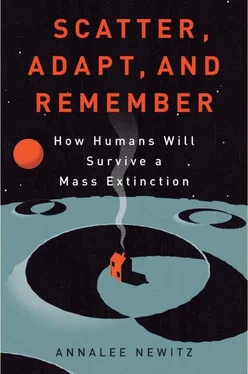

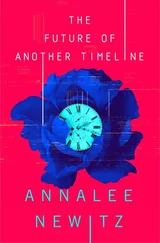



![Аннали Ньюиц - Автономность [litres]](/books/424681/annali-nyuic-avtonomnost-litres-thumb.webp)
